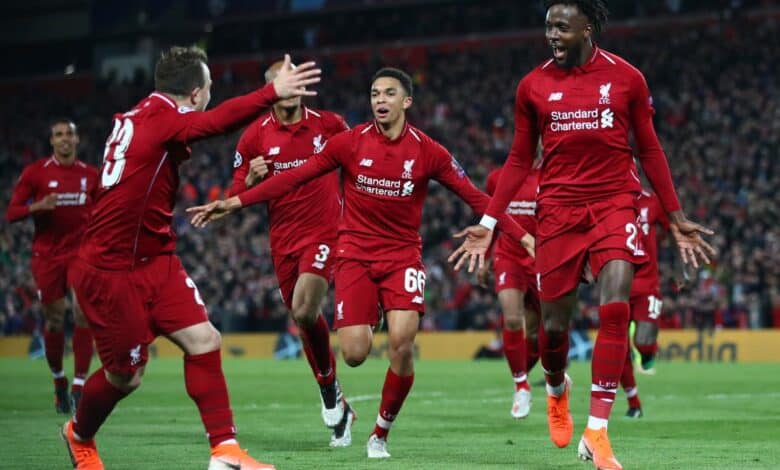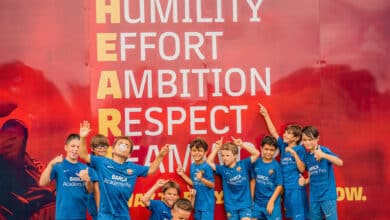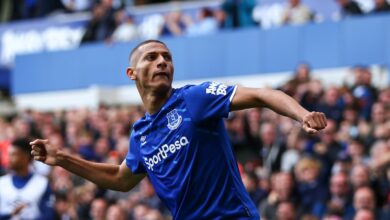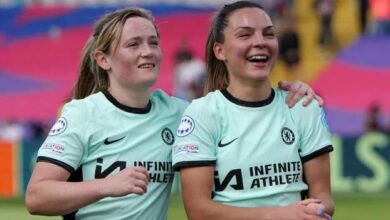One word conjures memories of Liverpool’s greatest night under Jurgen Klopp: Barcelona

In the closing minutes of Liverpool’s win over Tottenham on Sunday, many at Anfield were singing a Nottingham Forest substitute’s name. Not, admittedly, because he is a Nottingham Forest substitute. But if mentions of Divock Origi were a reminder the Belgian scored Liverpool’s second goal in the 2019 Champions League final against Spurs, it was, at most, only his second finest night at the club.
Tuesday marks the fifth anniversary of the best, the game that encapsulated everything that was superb about Jurgen Klopp’s Liverpool. Barcelona – and the details are sufficiently well known that one word can suffice as an explanation – brought fearless, ferocious attacking football in an intense atmosphere, Liverpool’s capacity for comebacks shown by their most sensational. Klopp, the manager who pledged at his unveiling to turn doubters into believers, had Anfield believing in the impossible until it became possible and then actual. A coach who declared his aim was not to be the best team in the world but to beat the best may have achieved the former by doing the latter. A man who saw the potential in a fallen giant lifted Liverpool to new heights. Anfield was renowned for great European nights. And then, over 90 extraordinary minutes, Klopp ended the debate about what was the greatest. “I will remember it forever 100 per cent and I don’t know if it will happen again,” the German said, with his ability to sum up events. It hasn’t: with two games to go of a reign packed with memorable matches, it is clear which ranks first among his 489 matches.
Barcelona were beaten 4-0, Lionel Messi upstaged by a double from the emblematic underdog Origi. Even as Luis Suarez marked his return to Anfield with predictable antics, they backfired in hubristic fashion. He kicked Andy Robertson, who went off injured. His replacement Gini Wijnaldum scored twice in three minutes.
Liverpool had needed to beat Barcelona by four goals. They were without two of their usual front three, “two of the world’s best strikers”, in Klopp’s words. And yet Trent Alexander-Arnold’s pre-match words assumed a prophetic feel. “It also presents an opportunity for others to make themselves heroes,” said the right-back, showing great foresight at just 20. “And if we do overturn the deficit, whoever scores, their name will always be remembered.” So it was that Origi became the improbable icon, the smiling everyman now indelibly associated with the evisceration of the most star-studded side in world football.
With the aid of Alexander-Arnold. Klopp’s faith in a unique young talent was another factor in elevating Liverpool to another level, his raiding full-backs a defining feature of his narrow formation. And with the aggregate scores levelled by Wijnaldum’s double, with extra time beckoning, Liverpool got a corner. And in a packed, febrile Anfield, two people reacted quicker than anyone else. Virgil van Dijk later admitted he didn’t see the most celebrated goal of the Klopp years. The manager himself reflected that night: “I saw the ball flying in the net and I didn’t know who took the corner or who scored.” The answers were Alexander-Arnold and Origi, the Merseysider sending a quick, low corner to the near post, the Belgian finishing Barcelona off. Years later, Alexander-Arnold would switch executive boxes at Anfield to get one overlooking a corner of the ground; that corner.
Then Liverpool were suddenly positioned for Klopp’s belated first trophy; if all the great Liverpool managers have won the European Cup – apart from Kenny Dalglish, who was deprived of the chance to compete in it as a coach – it brought him entry to the pantheon. He had promised on his arrival to win a trophy within four years; Liverpool won the most prestigious of all.
The context made it still better. Barcelona featured Philippe Coutinho, whose £142m sale had paid for Van Dijk and Alisson’s arrivals. Liverpool had lost 3-0 in the Nou Camp a week earlier, with Wijnaldum miscast as a false nine, in Roberto Firmino’s absence. A day earlier, Vincent Kompany had scored the goal of his life, for Manchester City against Leicester, rendering it improbable Liverpool would win the Premier League.
And Mohamed Salah was sat in the stands, joining Firmino among the absentees as Xherdan Shaqiri and Origi started instead. The Egyptian’s T-shirt instead displayed Liverpool’s attitude. It read: “Never give up”. They didn’t. Klopp ended up celebrating how his side showed “the mentality of giants”.
But also the lungs of athletes. Liverpool ran 7km more than Barcelona. It was a way in players Klopp inherited when he took over a team in 10th – in Jordan Henderson, James Milner and Origi – and those he bought from relegated clubs, in Shaqiri, Robertson and Wijnaldum, could beat Barcelona. Theirs was a triumph of teamwork over talent.
It came with a distillation of Klopp’s philosophy. “A mix of big heart and football skills that was beautiful,” he said later that night. His captain, the man who would lift the Champions League trophy a few weeks later, left the field singing “Allez Allez Allez” with the crowd. And yet the most meaningful words may have been delivered in the dressing room; before kick-off, by Klopp. “He said we can enjoy the night and maybe tell the grandkids one day it was a special night,” Henderson recalled. It was. And if Klopp has never topped it, perhaps no one else ever has at Anfield either.



